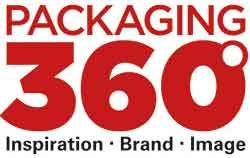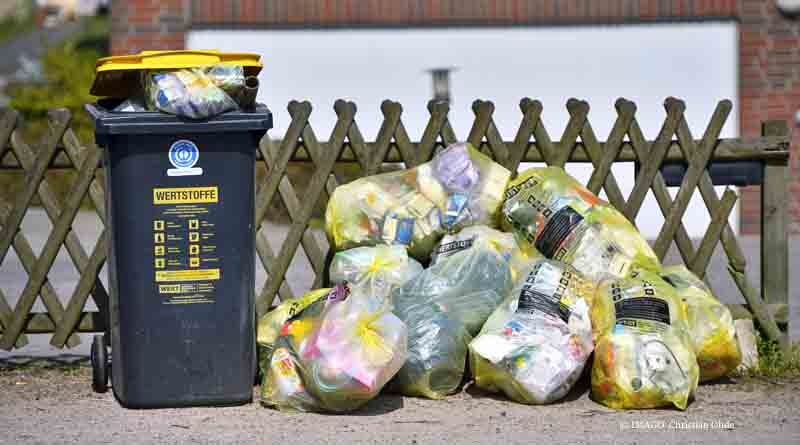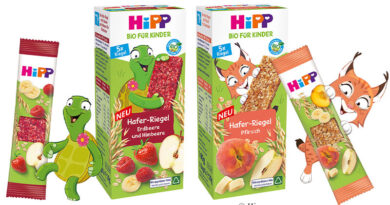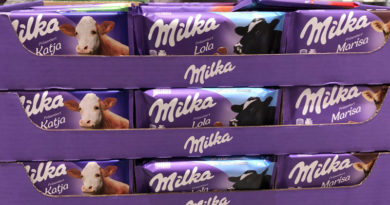Werner & Mertz Increases rPET Share from the Yellow Bag
Werner & Mertz, alongside with cooperation partner Alpla, has succeeded in increasing the share of recyclate from the Gelber Sack (yellow bag) in PET bottles to 50 percent. The first 200,000 bottles for the Frosch brand will be used as early as March 2021.
Another special achievement with a view to the more sustainable use of plastics by Werner & Mertz: the proportion of recycled PET from the yellow bag will rise to 50 percent in the bottles used by the manufacturer of detergents, care products and cleaning agents. The changeover will begin with the Frosch brand at the beginning of March. By the end of the year, all PET bottles will be converted to the new format.
Back in 2012, Werner & Mertz, together with Alpla and other cooperation partners, launched the “Recyclat-Initiative” and since then has been working to ensure that plastic from final consumer collections (PCR) is reprocessed to high quality and reused as a recyclable material after use. In 2014, for example, the company succeeded in converting Frosch brand PET bottles to 100 percent PCR, 20 percent of which came from the Gelber Sack. The remaining 80 percent comes from the European beverage bottle collection (Bottle to Bottle). Over 440 million such bottles have entered the market to date. Werner & Mertz has long strived to increase the proportion from the Gelber Sack. So far, however, the existing technology had not allowed the desired transparency to be achieved with rPET.
PET Recycling Team Wolfen takes care of sorting
The PET Recycling Team Wolfen, which started work in October 2020, takes care of the recycling. More than eight million euros have been invested in the joint venture founded by packaging specialists Alpla and Fromm. At the new recycling plant in Wolfen, the PET that comes from yellow bags or garbage cans exclusively from German plastic collection systems and plastic reprocessors is pre-sorted in so-called lightweight packaging plants. There, it is then precisely separated into transparent PET and colourful PET. The focus is on PET hollow bodies, which include non-deposited PET bottles, PET bottles from household cleaners, and trays. Residual materials are also separated. High-quality fine sorting is a further development of the well-known infrared technology (NIR).
In the next step, a transparent granulate is produced from this at Texplast Wolfen, which is in turn processed into preforms and bottles by Alpla. In this way, recyclable materials from Germany are recycled in Germany. This means, transport distances remain short. “Werner & Mertz is an impulse generator for the entire industry. We hope that this example will also motivate other companies to use these high-quality recyclates,” says Georg Lässer, Head of Corporate Recycling at the Alpla Group. Reinhard Schneider, owner of Werner & Mertz, emphasizes that the new bottles do not differ in look and feel from the previous packaging: “The customer will not notice any difference in quality.” The company is deliberately not revealing which format will be changed over first. This was already done when the bottles were converted to 20 percent from the Gelber Sack, he said. “No one noticed. For us, this is the best proof that true sustainability is also possible without sacrifice or half-hearted compromises.”
Call for legal incentives
Werner&Mertz says the example shows that high-quality sorting technologies are available and that the quality of recyclate produced in this way is high. “The higher cost of recyclate compared to virgin plastic continues to deter many manufacturers, and this problem has worsened due to falling crude oil prices,” Schneider explains. But if the high grades of recyclate are not in demand, there is no basis for investing in better sorting and processing, he adds. “At the same time, recycling becomes more economical the more that participate. It’s a tremendous opportunity.”
That is why Werner & Mertz is calling for legislators to create financial incentives for the use of PCR. The company is lobbying for the creation of a fund into which all distributors would have to pay, and only those who use PCR would receive a refund.




